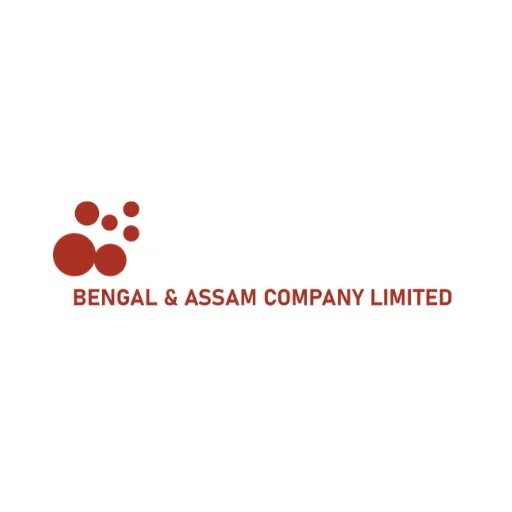1. At a Glance
If you ever wondered how “old money” compounds in India without breaking a sweat — welcome to Bengal & Assam Company Ltd (BACL), the JK Group’s financial umbrella that collects dividends like Indian aunties collect Tupperware. Trading at ₹7,300 per share with a market cap of ₹8,325 crore, the company is one of India’s most stealthily powerful Core Investment Companies (CICs) registered with the RBI.
This sleepy-looking investment vault posted Q2 FY26 revenue of ₹642 crore, up 8.9% YoY, and a PAT of ₹219 crore, up a spicy 71.7% YoY — proving once again that it’s not just cement, tyres, or paper that make money in the JK empire… sometimes, it’s the ones that own the owners.
Despite the sluggish 3-month price return of –10.3%, the company is sitting on a juicy book value of ₹8,954 per share, making it one of the rare Indian companies trading below book at P/B 0.82x. A P/E of 10.2 only makes it more interesting for value nerds.
And here’s the kicker — BACL is almost debt-free (Debt/Equity 0.05). So yes, they’re basically a big fat dividend and investment cheque collector. But make no mistake, when your holdings include JK Lakshmi Cement, JK Tyre, and JK Paper, your “dividend income” can look like a medium-sized PSU’s entire P&L.
2. Introduction
In a market obsessed with flashy “AI for chai” startups, Bengal & Assam Company Ltd stands like a conservative Marwari uncle — rich, calm, and utterly allergic to FOMO. This is not a company that launches new apps or burns cash. It sits on ₹10,000 crore worth of group investments and quietly collects its returns.
As a Core Investment Company (CIC) under RBI regulations, it can’t run a lending business or go YOLO into crypto. Its sole job is to hold, nurture, and occasionally reshuffle investments in its sprawling family tree of JK Group firms. Think of it as the holding company equivalent of a joint family’s HUF account — but with real money and dividends instead of gold bangles.
The FY25–26 cycle has been eventful. The NCLT-approved Scheme of Arrangement involving Umang Dairies, Panchmahal Properties, and BACL became effective in June 2025 — making BACL a post-merger super-holding structure for multiple JK entities.
It’s hard not to admire this company’s consistency. Even when its sales have shrunk 58.9% over five years, its bottom line — thanks to strategic dividends and fair value gains — has continued to shine. Its 10-year profit CAGR is 15%, and its 5-year return on equity still clocks at a proud 15%.
So, is BACL a boring stock? Absolutely. But it’s the kind of boring that gets richer every fiscal year.
3. Business Model – WTF Do They Even Do?
Let’s decode this: BACL doesn’t manufacture cement, tyres, or paper. It owns the companies that do. It’s a Core Investment Company, meaning its primary activity is to invest and hold stakes in other group entities — primarily in the JK Group, one of India’s most diversified industrial empires founded back in 1918.
Here’s what sits
under its golden umbrella:
- JK Lakshmi Cement Ltd – the cement beast
- JK Tyre & Industries Ltd – the rubber king
- JK Paper Ltd – the paper prince
- JK Fenner (India) Ltd – the mechanical muscle
- JK Agri Genetics Ltd – the seed scientist
- Umang Dairies Ltd – the milk magician
Nearly 97% of its total assets are in the form of investments — equity, preference shares, subsidiaries, and other group company holdings. That’s not “asset-light”; that’s “asset-full-but-does-nothing-else.”
The company’s income mainly comes from two sources:
- Dividend income (₹102 crore in FY23 vs ₹51 crore in FY22)
- Interest income (₹6 crore in FY23 vs ₹8 crore in FY22)
In short: they earn when their cousins perform. It’s like the passive-aggressive cousin who doesn’t work but shows up to collect dividends at every family meeting.
The latest twist? The demerger-merger restructuring effective June 2025 makes BACL the parent of even more assets, simplifying the group’s maze-like structure. Imagine a corporate-level spring cleaning — except they used SEBI circulars instead of brooms.
4. Financials Overview
| Metric | Latest Qtr (Sep’25) | Same Qtr Last Yr (Sep’24) | Prev Qtr (Jun’25) | YoY % | QoQ % |
|---|---|---|---|---|---|
| Revenue (₹ Cr) | 642 | 590 | 573 | 8.9% | 12.0% |
| EBITDA (₹ Cr) | 191 | 157 | 101 | 21.6% | 89.1% |
| PAT (₹ Cr) | 219 | 128 | 258 | 71.7% | –15.1% |
| EPS (₹) | 191.94 | 112.86 | 219.05 | 70% | –12% |
Annualised EPS = ₹191.94 × 4 = ₹768 per share
P/E = ₹7,300 / 768 = 9.5x (approx)
Commentary:
If you thought holding companies are dull, BACL just delivered a mic drop. A 71.7% YoY PAT surge isn’t normal — that’s “I sold some old investments” energy. With EBITDA margins at 30%, the company is now operating more profitably than many of its own subsidiaries. The QoQ dip in PAT is fine — every family business has one cousin who underperforms occasionally.
5. Valuation Discussion – Fair Value Range (Educational Only)
Method 1: P/E Approach
Annualised EPS = ₹768
Industry P/E = 21.2
Conservative range: 8x – 15x
→ Fair Value = ₹768 × (8–15) = ₹6,144 – ₹11,520
Method 2: EV/EBITDA Approach
EV/EBITDA = 15.3x
EBITDA (TTM) = ₹453 crore
Enterprise Value = ₹8,825 crore
→ Adjusted fair EV range (12x–18x) = ₹5,436 – ₹8,154 crore
→ Fair Price = EV / Shares ≈ ₹4,800 – ₹7,200

